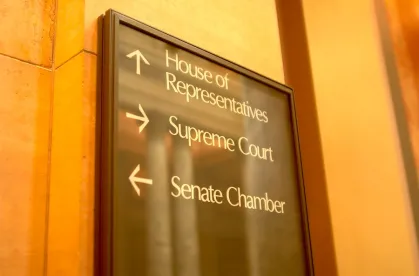On July 16, 2018, Republican and Democratic leadership of the House Financial Services Committee announced that they have reached agreement to advance a package of financial services reforms known as the “JOBS Act 3.0,” consisting of 32 pieces of legislation that have passed the Committee or the full House with bipartisan support.
While much of the package is focused on capital markets regulation, several of the component bills relate to prudential or consumer financial services matters.
H.R. 4292, the Financial Institution Living Will Improvement Act of 2017, would reduce the frequency with which banking organizations would be required to submit resolution plans to the Federal Reserve and the FDIC to every two years, rather than annually as is currently required. The bill would cover resolution plans required by section 165 of the Dodd-Frank Act and insured depository institution or “IDI” plans required by FDIC regulations. The Federal Reserve and FDIC would be required to provide feedback regarding a resolution plan within six months after a bank holding company submission. The bill would also require the Federal Reserve and FDIC to publicly disclose the assessment framework used to review the adequacy of resolution plans.
Sections 2 and 3 of H.R. 4566, the Alleviating Stress Test Burdens to Help Investors Act, would exempt nonbank systemically important financial institutions (“nonbank SIFIs”) not primarily regulated by either a federal banking agency or the Federal Housing Finance Agency from the Dodd-Frank Act’s company-run stress-testing requirements. The Securities and Exchange Commission and the Commodity Futures Trading Commission would retain their authority to issue regulations to require nonbank SIFIs to conduct periodic analysis of the financial condition of such companies under adverse economic conditions.
H.R. 5749, the Options Markets Stability Act, would require the federal banking agencies to implement a risk-adjusted approach to value centrally-cleared exchange-listed derivatives within risk-based and leverage capital requirements. The House Report accompanying the bill suggests that the legislation is intended to require the agencies to implement a version of the Standardized Approach to Counterparty Credit Risk (SA-CCR), which has been adopted internationally.
H.R. 2364, the Investing in Main Street Act, would increase the maximum amount that a bank or federal savings association can invest in a small business investment company (SBIC) to 15 percent of the institution’s capital and surplus from 5 percent, subject to approval by the institution’s primary federal regulator.
H.R. 435, the Credit Access and Inclusion Act of 2017, would amend the Fair Credit Reporting Act (FCRA) to authorize an entity, including the Department of Housing and Urban Development (HUD), to furnish data to consumer reporting agencies regarding an individual’s history of on-time payments with respect to a lease, or contracts for utilities and telecommunications services.




 />i
/>i
